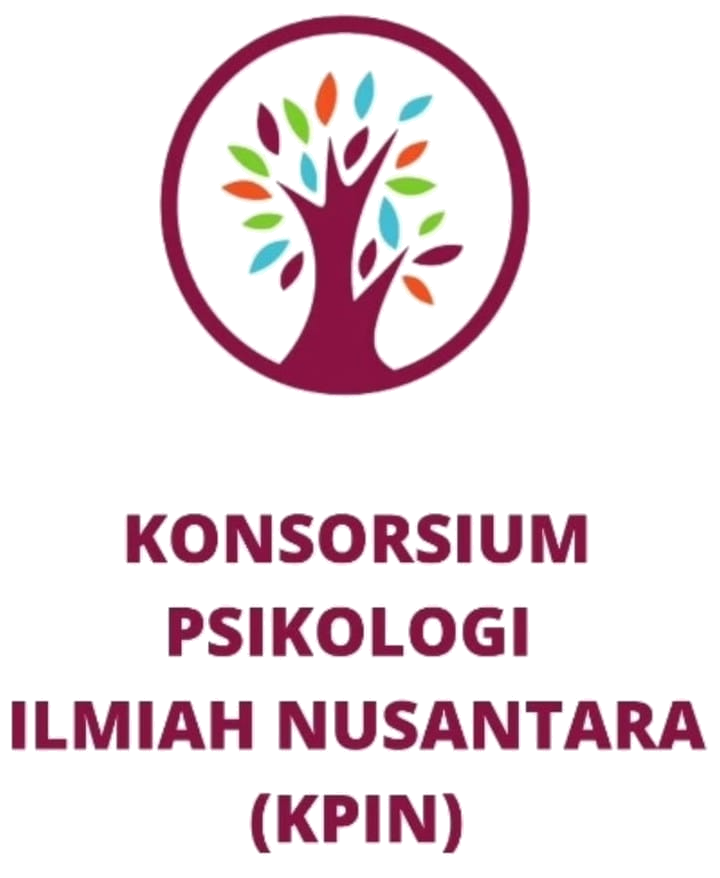Peran Religiusitas dan Psychological Well-Being terhadap Resiliensi Korban KDRT
DOI:
https://doi.org/10.35814/mindset.v10i02.836Keywords:
domestic violence, resiliense, religiousity, psychological well-being, womenAbstract
Domestic violence is a case of violence that is increasing in Jakarta. Impact of domestic violence can cause deep trauma, but victims are also required to survive and have good resilience in order to continue positive life. To achieve the resilience and positive life, the victims must have a good Psychological well-being. One of the supporting predictors on resilience is Psychological well-being and religiosity. The Psychological well-being has important role to increase self resilience, and religiosity has a role related to Psychological well-being to increase resilience. This research aims to find out the role of religiosity and psychological well-being to Resiliencen women who struggle in domestic violence. Research method was based correlation design.We used Religiosityscale by Glock and Stark and RPWB (Ryff's Psychological Well-being) and Resilient Question scale by Reivich and Shatte.Population in this research was victim of domestic violence and sample was 62 women who was victim of domestic violence based on purposive sampling methods.The Analysis test result used regression that R-squared = 0,11 (p > 0,05) for religousity and resilence. R-squared 0.59 (p>0.05) for PWB and resilence. It means there is significant contribution of religiosity and Psychological well-being to resilience on women who were victims of domestic violence.This result are expected that government and domestic violence institution can practically improve the religiosity and Psychological well being of victims of domestic violanceto increase resilience.
References
Aisha, D. L. (2014). Hubungan antara religiusitas dengan resiliensi pada remaja di panti asuhan keluarga
yatim muhammadiyah surakarta. Skripsi Fakultas Psikologi Universitas Muhammadiyah Surakarta .
Ancok, D., & Suroso, F. N. (2011). Psikologi Islami: Solusi Islam atas Problem-Problem Psikologi. Yogyakarta: Pustaka Belajar.
Azwar, S. (2007). Metode Penelitian. Yogyakarta: Pustaka Pelajar.
Baquandi, dkk. (2009). Kekerasan Dalam Rumah Tangga. Malang: Universitas Negeri Malang.
Bastaman, H.P. (2000). Meraih Hidup Bermakna Kisah Pribadi Dengan Pengalaman Tragis. Jakarta: Paradikma.
Budiman, Y. (2017, Maret 8). Tribun News. Retrieved Juli 12, 2017, from Tribun News: http://www.tribunnews.com
Burns, R. A., Anstey, K. J., & Windsor, T. D. (2010). Subjective well-being mediates the effects of resilience and mastery on depression and anxiety in a large community sample of young and middle-aged adults. The Royal Australian and New Zealand College of Psychiatrists, 45(3), 240-248.
Crocker, J., & Park, L. E. (2004). The costly pursuit of self-esteem. Psychological Bulletin, 130(3), 392–414.
Detik.Com. (2018, 10 11). Riset: 30 Persen Remaja DKI Pernah Depresi, Sebagian Sampai Ingin Bunuh Diri. Dipetik 12 15, 2018, dari Detik.com: https://health.detik.com/berita-detikhealth/d-4251448/riset-30-persen-remaja-dki-pernah-depresi-sebagian-sampai-ingin-bunuh-diri
Ekasari, A. (2010). Attachment pada ayah dan penerimaan peer group dengan resiliensi study kasus pada siswa laki laki ditingkat sekolah menengah pertama (SMP). JurnalSoul, 2(2), 33-61.
Fitriani, A. (2016). Peran religiusitas dalam meningkatkan psychological well being. Al-Adyan: Jurnal Studi Lintas Agama 11(1), 57-80.
Gupta, S., Avasthi, A., & Kumar, S. (2011). Relationship between religiosity and psychopathology in patients with depression. Indian journal psychiatry, 53(4), 330-335.
Hamidah, T., & Gamal, H. (2019). Hubungan religiusitas dengan psychological well-being pada anggota Satpamwal Denma Mabes TNI. Ikraith-Humaniora I , 3(2), 139-146.
Handayani, D. T., Lilik, S., & Agustin, R. W. (2011). Perbedaan psychological well-being ditinjau dari strategi self management dalam mengatasi work family conflict pada ibu bekerja. jurnal Wacana , 3(2), 42-58.
Hurlock, E. B. (2000). Psikologi Perkembangan. Erlangga.
Ibrahim, M. H., Somers, J. A., Luecken, L. J., Fabricius, W. V., & Cookston, J. T.(2017). Father–adolescent engagement in shared activities: Effects on cortisol stress response in young adulthood. Journal of Family Psychology, 31(4), 485-494. DOI:10.1037/fam0000259.
Jia, R., & Schoppe-Sullivan, S. J. (2011). Relations between coparenting and father involvement in families with preschool-agechildren.Developmental Psychology, 47(1), 106–118.
Kasen, S., Wickramaratne, P., Gameroff, M. J., & Weissman, M. M. (2012). Religiosity and resilience in persons at high risk for major depression. Psychological Medicine, 42(3), 509-519. https://doi.org/10.1017/S0033291711001516.
Komnas Perempuan. (2017, Maret 7). Retrieved April 2017, from Komnas Perempuan: http://www.komnasperempuan.go.id
Mallers, M. H., & Neupert, S. D. (2010). Perception of chilhood relationship with mother and father: Daily emotional and stressor experiences in adulthood. Developmental Psychology, 46(6), 1651-1665.
Mardiah, A., Satriana, D. P., & Syahriatib, E. (2017). Peranan dukungan sosial dalam mencegah kekerasan dalam pacaran: studi korelasi pada remaja di Jakarta. Jurnal Psikologi Ulayat,4(1), 29-42.
Mayasari, R. (2014). Religiusitas islam dan kebahagiaan (sebuah telaah dengan perspektif psikologi). Al-Munzir, 7(2), 81-100.
Pertiwi, M. (2011). Dimensi religiusitas dan resiliensi pada residen narkoba di Bnn Lido. Skripsi Fakultas Psikologi UIN Syarif Hidayatullah Jakarta .
Phares, V. (1993). Perceptions of Mothers' and Fathers' Responsibility for Children's Behavior. Sex Roles, 29(11-12), 839-851.
Putri, N., & Aviani, Y. I. (2018). Gambaran istri korban KDRT yang mempertahankan pernikahannya.Universitas Negeri Padang.
Rahayu, S. N. (2013). Kecemasan dan strategi coping istri yang menjadi korban kekerasan dalam rumah tangga di Samarinda. Jurnal Ilmiah Psikologi Psikoborneo, 1(1), 80-81.
Ramadani, S. P. (2015). Pelatihan berani tangguh dan mandiri untuk meningkatkan psychological well-being pada remaja di panti asuhan. Skripsi thesis. UIN Syarif Kasim Riau .
Reich, J. W., Zautra, A. J., & Hall, J. S. (2012). Handbook of Adult Resilience. London: The Guilford Press.
Reivich, K. and Shatté, A. (2002) The Resilience Factor: 7 Essential Skills for Overcoming Life’s Inevitable Obstacles. Broadway Books.
Rofatina, N. A., & A, P. (2016). Hubungan antara regulasi emosi dan religiusitas dengan resiliensi pada ibu yang memiliki anak tunagrahita di SLB C YPSLB Kerten Surakarta. Jurnal Psikologi Wacana, 8(2), 1-14.
Sagone, E., & Caroli, M. E. (2014). Relationships between psychological well-being and resilience in middle and late adolescents. Social and Behavioral Sciences, 141, 881 – 887.
Schofield, T. J., parke, R. D., Coltrane, S., & Weaver, J. (2016). Optimal assessment of parenting, or how I learned to stop worrying and love reporter disagreement. Journal of Family Psychology, 30(5), 614-624. DOI:10.1037/fam0000206.
Suryaman, M. A. (2013). Pengaruh religiusitas terhadap resiliensi pada pasien rehabilitasi narkoba Yayasan Rumah Damai Semarang.Intuisi: Jurnal Psikologi Ilmiah, 6(2), 98-103.











